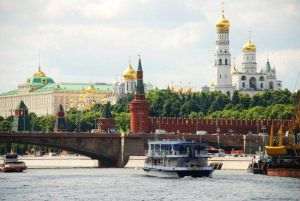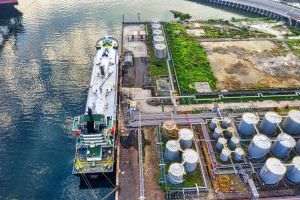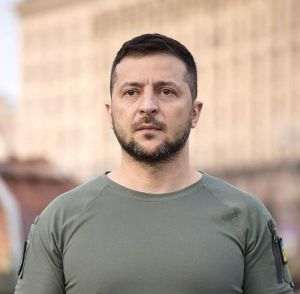The arms race is reaching new levels in this period and confirms the data and forecasts presented in mid-spring by the report of the Stockholm International Peace Research Institute (SIPRI), information which showed that the states of the world are strengthening their military power in response to the deterioration of the security environment following the Russian Federation's initiation of the war in Ukraine, an environment which I do not believe will improve in the near future. And this risk of deterioration of the global security environment was recently confirmed following the military coup in Niger.
So, in the last week, we witnessed new arms purchases or the promise of the delivery of weapons or military equipment. The arms race of the past seven days was opened by Germany after Israel received US approval to deliver the Arrow 3 anti-missile defense system to the authorities in Berlin. Negotiations on the purchase of this system began after the outbreak of Russia's war of aggression against Ukraine on February 24, 2022. Following the agreement expressed by the US, representatives of the defense ministries of Israel and Germany and those of Israel Aerospace Industries (IAI) will sign a letter of commitment, and after the parliaments of the two states ratify the purchase, the contract will be signed. German and Israeli officials say the document will be signed by the end of this year, especially since members of the budget and defense committees of the Bundestag have already voted in favor of the purchase. The costs will amount to almost four billion euros. At Germany's initiative, Arrow 3 is to become part, starting in 2025, of a new European air defense system.
At the end of last week, the Netherlands and Denmark announced that they would donate almost 61 F-16 fighter jets to Ukraine after pilot training is satisfactorily completed. Denmark's prime minister, Mette Frederiksen, said his country would deliver 19 planes by the end of this year, eight planes in 2024 and five more by the end of 2025. Mark Rutte, the head of the Dutch government, did not give an exact figure for his country's donation, but said the air force has 42 F-16s.
The statements of the two officials were made after previously, also last week, Sweden also expressed its willingness to offer some Gripen fighter jets to Ukraine, but without specifying when any decision will be made in this regard.
Ahead of the announcements by the two Western European governments, Oleksii Reznikov, Ukraine's defense minister, said Ukrainian pilots had begun training on F-16 fighter jets following the US agreement to supply them to training centers in Europe - one of which will be in Romania - of the materials and equipment necessary to train these pilots. Reznikov said he would not disclose how long the training would take, but specified that "a minimum term of training is six months."
Australia has entered the arms race, which on Monday initialed a deal with the US to purchase more than 200 Tomahawk cruise missiles to counter China's growing military power. This order, worth $830 million, will bring the Australian armed forces some of the "most powerful and technologically advanced weapons", the Ministry of Defense in Canberra said.
"We are investing in the capabilities our defense force needs to keep our adversaries off our shores and keep Australians safe in the complex and uncertain world we live in today," he said, according to a press release quoted by AFP. , Australian Defense Minister Richard Marles.
The Tomahawk missiles, with a range of over a thousand kilometers, will be carried by the Australian Navy's Hobart-class destroyers. They can also be used by the nuclear submarines purchased by Australia under the AUKUS military pact signed between Canberra, London and Washington.
In this context, the British newspaper The Telegraph published an investigation, in which it shows that representatives of the political regime in Beijing provide the Russian Federation with helicopters, drones, optical objectives and mortars used in the defense industry.
The cited source shows that Russian firms, including those under international sanctions, companies that produce missile launchers, armored vehicles and fighter jets received tens of thousands of shipments from China from the beginning of the Russian invasion of Ukraine until the end of the first quarter. of the year 2023.
The Telegraph states that one of the Chinese companies - Shantou Honghu Plastics - is positioning itself acting as a toy wholesaler - sent 1,000 drones to Russia two months before the war started. The drones were sent to the Russian company Samson, which also describes itself as a game and toy wholesaler and appears to be a shell company, as according to the state register of companies, its authorized capital is only 10,000 rubles. British journalists also note that the Chinese company Hems999 supplied Russia with two helicopters, and the Chinese company, Tianjin Huarong Aviation, supplied Russia with four Airbus helicopters. The helicopters were received by the Russian company Ural Helicopter, whose main customer is the Russian National Guard, which has been deployed to Ukraine and is led by Viktor Zolotov, a former bodyguard of Putin.
According to the data published by the cited source, Chinese companies also delivered optical scopes to more than 50 Russian companies, as well as turbojets, navigation systems for radar missiles, which were initially shipped to India and Costa Rica, after which they arrived in the Russian Federation .
Regarding the raw materials and materials needed for the Russian arms industry, the quoted source says that last year China exported $18 million worth of titanium alloy products to Russia, almost twice as much as the previous year. In addition, Chinese companies have also supplied magnesium alloys to the Tupolev firm, which builds and helps maintain long-range bombers such as the Tu-95 and Tu-160M, which are used in cruise missile attacks on Ukraine.
All the above situation shows that we are in the process of arming the world and, in particular, two areas: Europe and Asia-Pacific. In all this context, political leaders have forgotten about the fight against climate change, the fight against poverty, social inclusion and the support that third world countries need.



















































